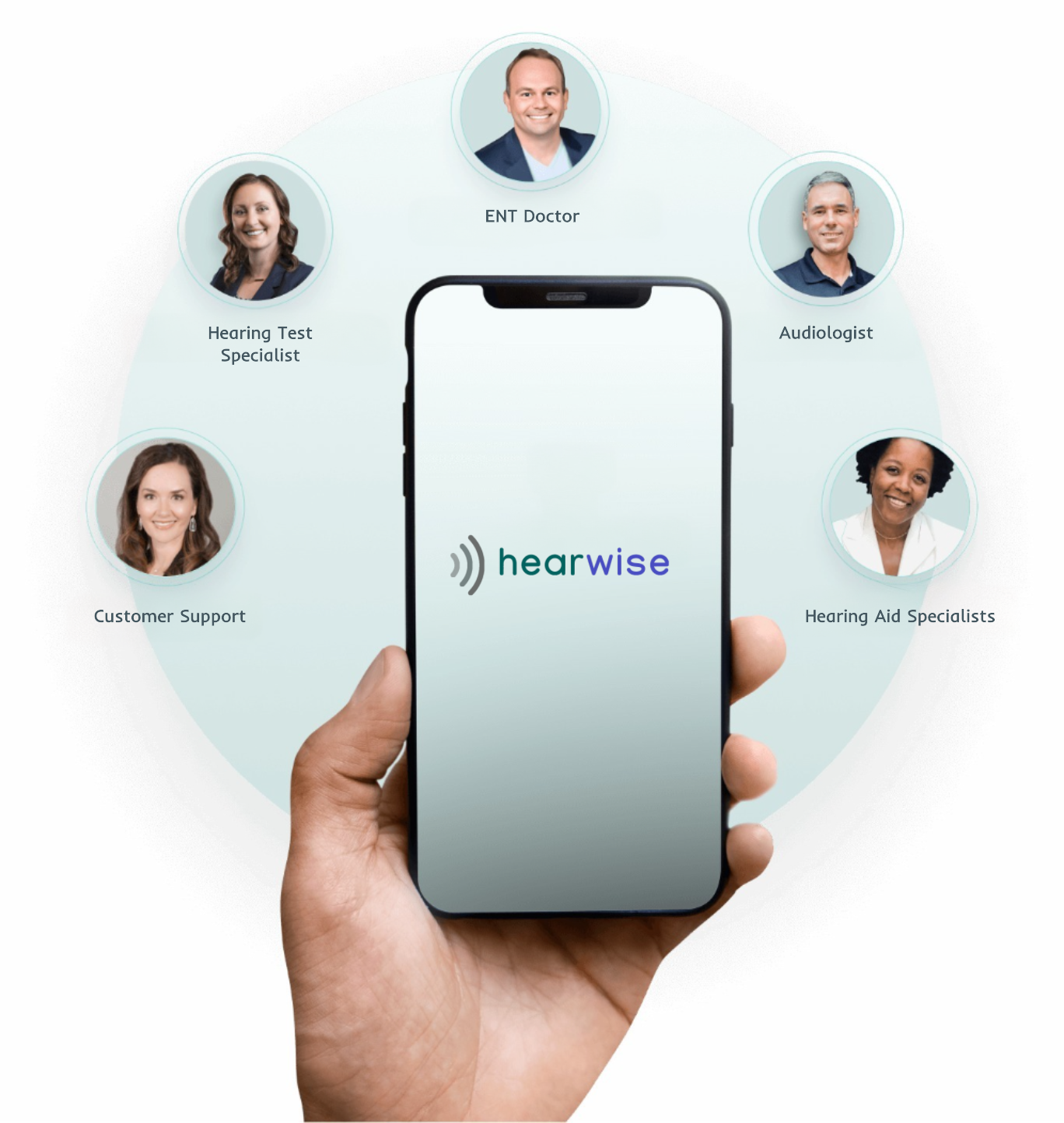
With a deep specialization in diagnosing and treating ear, nose, and throat (ENT) disorders, ENT Doctors brings a wealth of medical expertise to the HearWise team. Their comprehensive assessments and medical guidance ensure that underlying medical conditions are identified and addressed, paving the way for optimal hearing outcomes.

“It’s rewarding to offer quality care that helps patients without unnecessary surgeries or procedures.”
Dave Woznica, MD
Director of Physical Medicine and
Rehabilitation


Possessing a keen eye for detecting even subtle hearing impairments, Audiologist conducts detailed hearing tests and analyzes audiometric results with precision. Their expertise in recommending appropriate treatment options ensures that patients receive the most suitable hearing solutions.

"I love bringing high-quality medical care directly to patients’ fingertips. Providing access to the right care at the right time makes a big difference in someone's life.”
Kaitlyn C. Peters, NP
Lead Nurse Practitioner
With a specialized focus on administering a range of hearing tests, Hearing Test Specialist plays a crucial role in determining the nature and extent of hearing loss. Their expertise in audiometry, tympanometry, and speech recognition tests provides invaluable insights into the patient's auditory profile.

“I am inspired by how quickly technology can help patients reach new heights by removing obstacles like the need to drive to a PT clinic.”
Mark Milligan, PT, DPT
Director of Physical Therapy
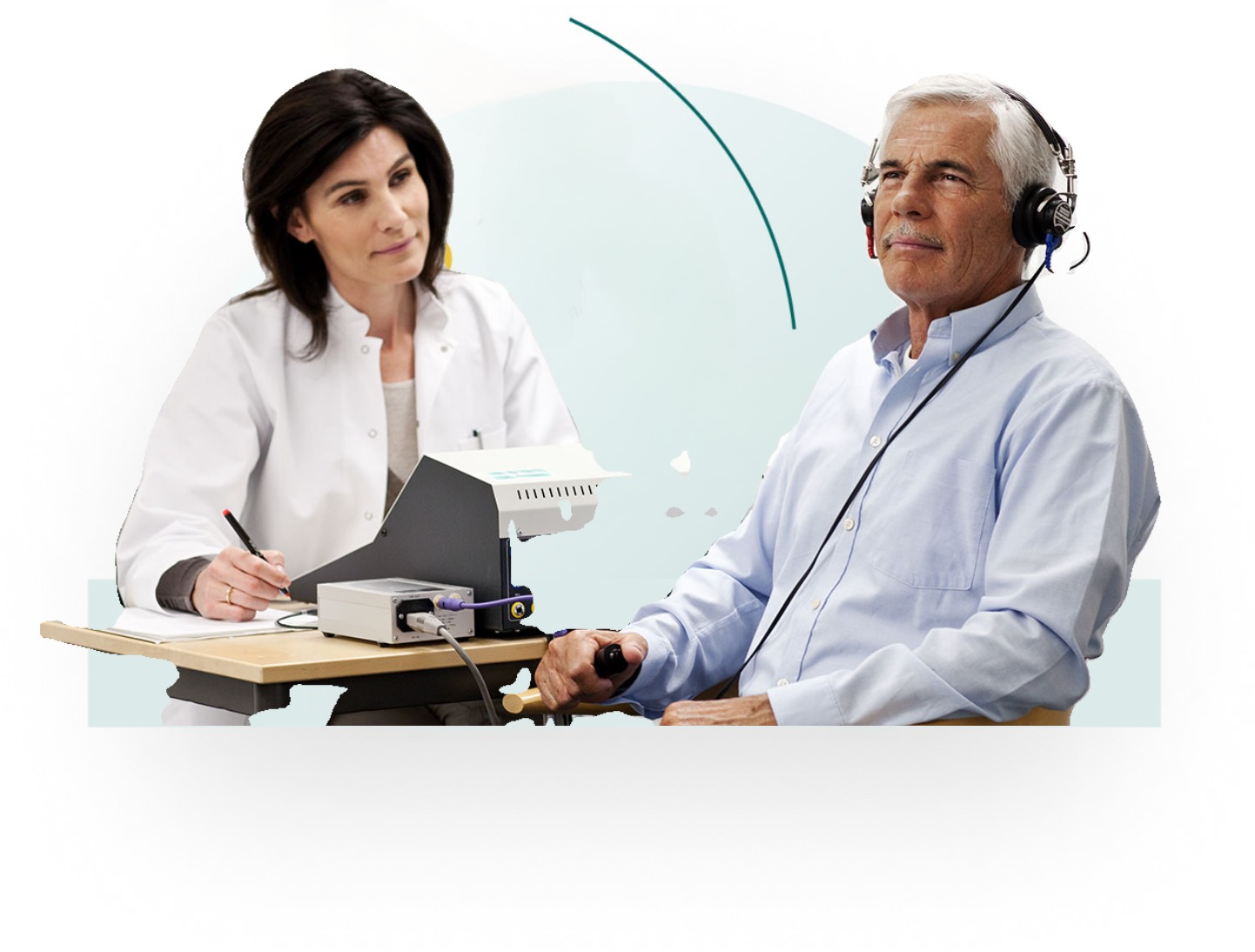
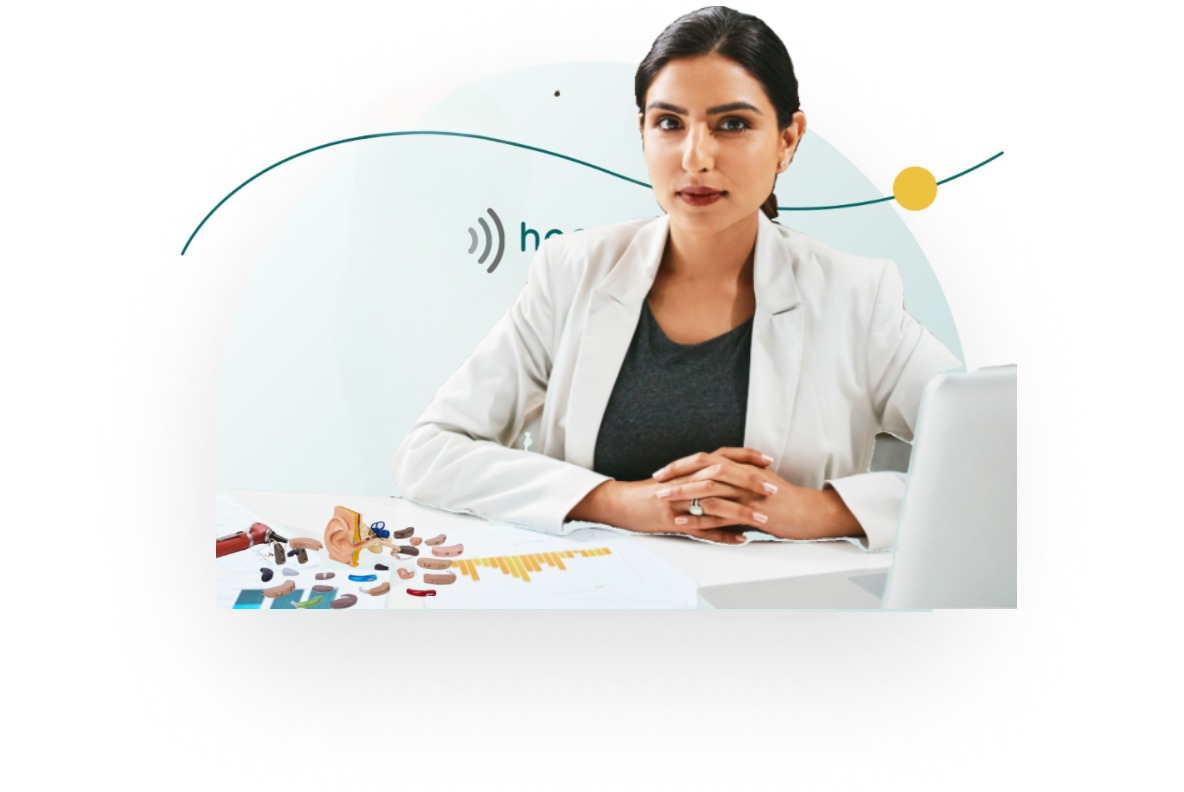
Our team of hearing aid specialists is proficient in guiding patients through the selection, fitting, and maintenance of hearing aids. Their expertise ensures that patients receive the right hearing aids for their unique needs and are well-equipped to optimize their hearing aid performance.

“Whether your goal is to eat better, exercise more, or manage stress, we can all benefit from a coach on our side! Getting to know each patient is the best part of my job.”
Holly Krymis, LCSW, NBC-HWC
Director
of Behavior Change & Health Coaching
Your registered dietitian nutritionist offers anti-inflammatory support to help reduce your symptoms and fuel your goals. Get clinically-reviewed guidance on healthy weight loss, proper hydration, balanced meal planning, and more.

“Teaching my patients how to eat instead of what to eat is my passion. With the right tools, everyone can nourish an anti-inflammatory environment in their bodies.”
Christi Bowling, RDN
Director of Nutrition

Our team's unwavering commitment to excellence is characterized by three key pillars.

We believe in the power of collaboration, bringing together the expertise of ENT specialists, audiologists, and hearing aid specialists to provide a holistic hearing care plan. This integrated approach ensures that every aspect of hearing health is addressed, from diagnosis and treatment to hearing aid selection and ongoing support.
Only about 20% of hearing providers follow best practices in audiology
Working with an Audiologist and ENT Doctots that follows best practices is the key to a life-transforming hearing care experience. Treating hearing loss properly is complex, and requires a provider willing to invest the time and resources in your optimal hearing results.
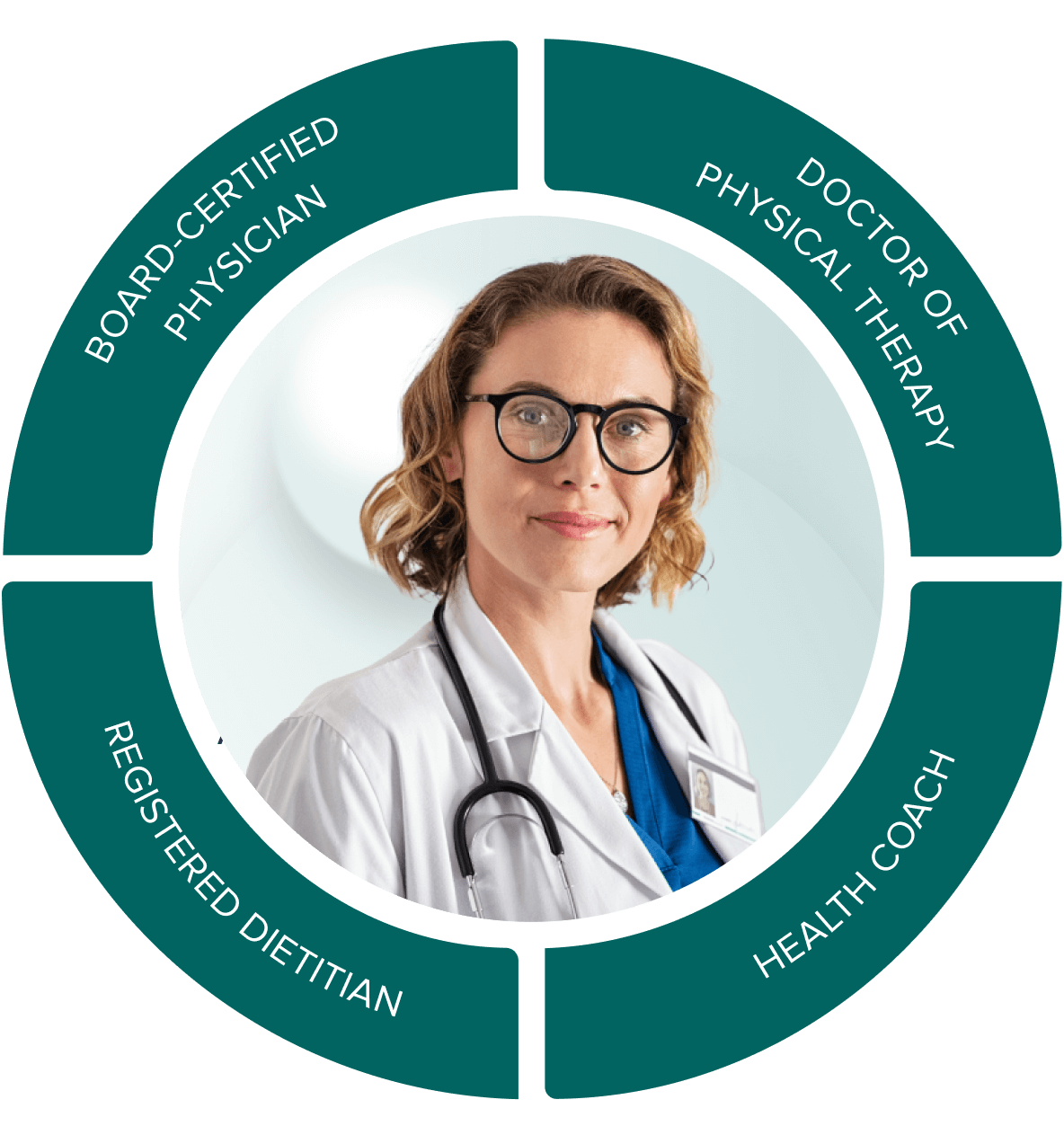
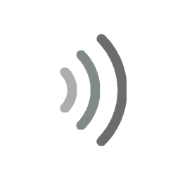
Many industries have best practice guidelines.
Take surgeons for example. Surgeons must wash their hands before performing a procedure to reduce the risk of spreading infection. There are documented best practices for properly performing this procedure.
The Hearing Industry also has Best Practice Guidelines when it comes to fitting hearing aids to ensure that providers understand what they must do to ensure maximum benefit with hearing treatment.
The American Academy of Audiology formed a Task Force of some of the hearing industries most educated and highly respected Audiologists to develop Best Practice Guidelines for the Audiologic Management of Adult Hearing Impairment.
These guidelines were developed based on the review of evidence and provides recommendations in 4 general areas:
1. Assessment & Goal Setting
2. Technical Aspects of Treatment
3. Orientation, Counseling, & Follow-up
4. & Assessing Outcomes
There are several things that should be done before treatment is even considered. These things should include a Comprehensive Case History, Otoscopic inspection, Cerumen Removal, a Hearing Assessment, and Needs Assessment.
A hearing assessment will result in the type and severity of hearing loss, possible medical referral, discussion of results, and determination of candidacy for hearing treatment.
A lifestyle needs assessment should be completed prior to testing or following testing. This will help to ensure that your hearing care provider can make decisions on hearing treatment recommendations to ensure the treatment is compatible with your lifestyle. If a complete understanding is not obtained, it becomes really difficult to recommend the right hearing treatment.
This encompasses Hearing Aid Selection, Quality Control, Fitting & Verification, & Hearing Assistive Technology.
When it comes to hearing aid selection, there are a variety of considerations. These include:
1. Style of hearing aid
2. Volume control needs
3. Telecoil needs
4. CROS vs BiCROS vs AmpCROS
5. Bone Anchored Hearing Aid
6. Wireless connectivity
7. Etc.
Quality control is where a Hearing Care Professional will evaluate your devices, including Test Box Measures, to ensure that they are mechanically performing correctly and to verify that digital features are performing correctly.
Fitting & Verification is where Real Ear Measurements (REMs) come into play. REMs are a form of verification that ensures that hearing aids are programmed correctly.
However, correct physical fit must be obtained to ensure that the devices can be comfortably worn.
Hearing Assistive Devices such as a remote microphone should be discussed. Sometimes, hearing aids aren’t enough, particularly in a background noise setting. Hearing Assistive Devices could mean the difference between you hearing and not hearing in a noisy environment.
Having a detailed orientation can dramatically improve how much success you have with hearing treatment. Counseling & Follow-up care can also ensure that you have success for years to come. Regular visits to a hearing care provider who spends the time to discuss treatment related information and who will maintain your devices is extremely important.
While Real Ear Measurements is a form of Verification, Outcome Assessments are typically forms of Validation.
Outcome assessments such as the Hearing Handicap Inventory for Elderly (HHIE), Abreviated Profile of Hearing Aid Benefit (APHAB), and the Client Oriented Scale of Improvement (COSI) are terrific ways to ensure that the hearing care provider has done a good job and that you are receiving significant benefit with hearing treatment.
Following Best Practices ensures that you receive the maximum amount of benefit from whatever hearing treatment you require.
However, finding a Hearing Care Professional who actually follows these Best Practices can be extremely difficult. This is why the Hearwise was created. Now you can easily find a provider near you who follows these Best Practices.